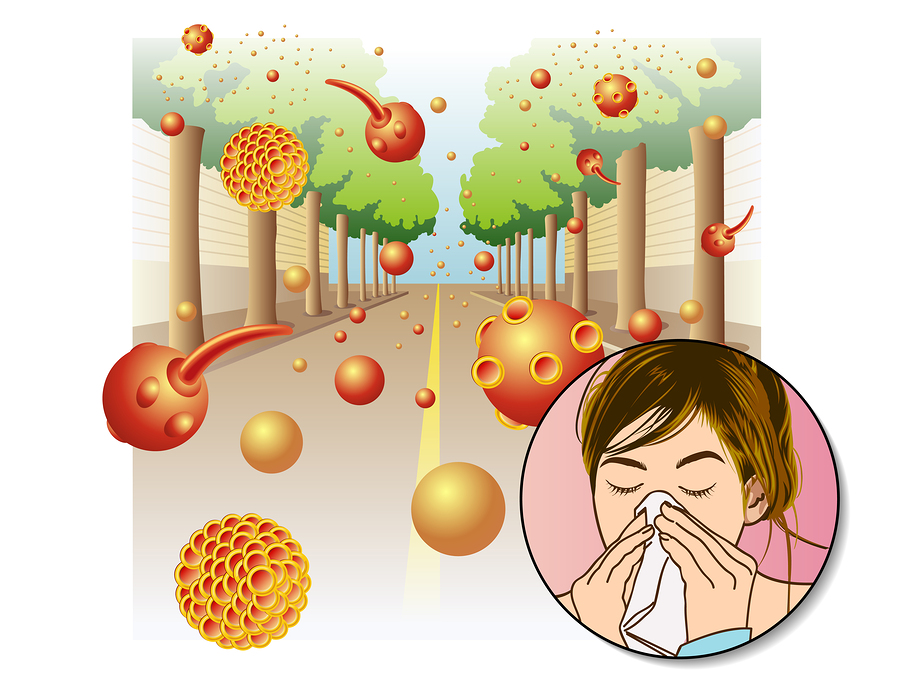
Most people know that tree, flower and grass pollens can cause hay fever and asthma, but some people manifest their sensitivity differently. Pollens and molds can cause inflammation in the body – and depending on where this inflammation is – be it the muscles, joints, or brain – the results will be different.
Unusual Symptoms
With exposure to pollen, a person can experience various symptoms like mood disruption, dizziness, headaches, joint and muscle pains – without ever having so much as a sneeze. In children, pollen sensitivity can manifest as personality changes or an inability to learn. Ragweed can create feelings of depression and serious physical inflammation that manifests as pain.
Sensitivity to molds can manifest as the usual allergy symptoms, but also mood disorders or general feelings of malaise. Snowball mold (that grows as snow melts at the end of March) is a problem for people with who have these sensitivities. Many people look forward to spring to get back to gardening. But raking those damp leaves can also expose you to outdoor molds. If you are sensitive, it takes the fun out of gardening.
Are you noticing symptoms when it’s damp outside after a spring rain? It’s probably mold. Do you start to feel malise at the end of February – it could be tree terpines. Do you feel neck spasms when the trees bloom? It’s probably a pollen sensitivity.
How to Help Yourself
Did you know that your allergies can be made worse when other allergens are present? It’s true. When an allergen is present, such as pollen – a food that normally might not cause a reaction does. These are called concomitant food allergies. The immune system overacts to the substance entering the body, and histamines are released and trigger allergic symptoms. Avoid concomitant foods to reduce allergy symptoms:
If you are sensitive to cedar and juniper trees avoid beef, yeast and mold like mushrooms and cheese.
If Elm pollen is a bother, avoid milk and mint,
Oak pollen is concomitant with eggs, apples and chestnut.
The foods to avoid if you have grass allergies are beans, peas, soy, wheat, corn, rye, barley,, oats, rice, millet, apple, carrot and celery.
When ragweed allergies begin to bother you, avoid, egg, milk, mint, lettuce, melons and banana.
And if dust allergies are bothersome, skip the shellfish and seafood.
Some Vitamin C supplement combinations can be helpful for seasonal allergies – if they contain quercetin, and bioflavonoids. In addition, there are some foods that can be important in the management of seasonal allergies. Always be sure to check that you can tolerate these foods if you are going to eat them and cross check for your concomitant allergies.
- Apples, berries, red grapes, red onion and black tea are high in bioflavonoids which can reduce allergic reactions by having an antihistamine effect.
- Another natural antihistamine, Vitamin C, is found in citrus fruits, bell peppers, strawberries, broccoli, tomatoes and leafy green vegetables.
- Other foods that reduce inflammation and can aid in reducing the allergic response are carotenoids, found naturally in red, yellow and dark green fruits and vegetables.
- Omega-3 fats reduce inflammation of the air passages
- Spicy foods, such as cayenne pepper and ginger, can thin mucus secretions and clear nasal passages.
- Increase your fibre to support a healthy, active colon which supports a healthy immune system.